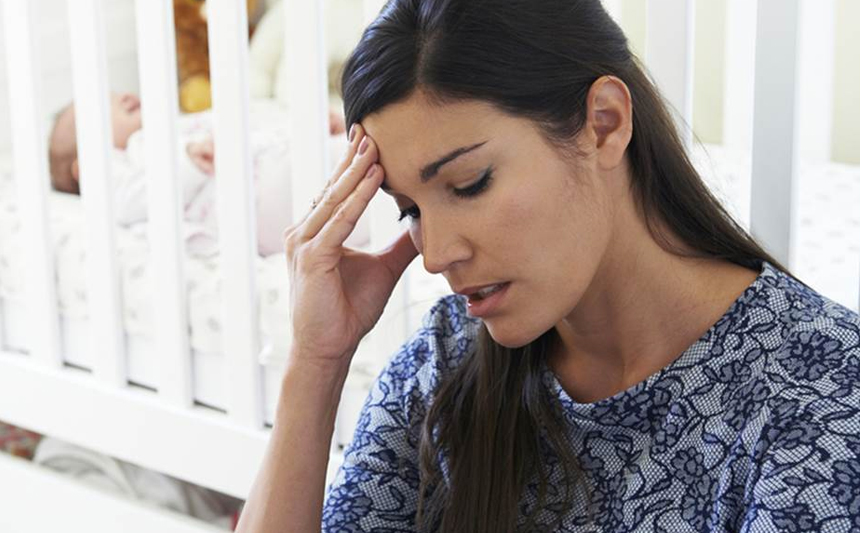If ‘baby blues’ persist or worsen, it’s time to talk to your doctor

From sleep deprivation to learning how to breastfeed, you face a lot of challenges as the mother of a newborn.
As you adjust to these challenges, it’s not uncommon to experience mood changes or feelings of sadness. These “baby blues” will often go away after a few weeks.
Sometimes, though, mothers of infants can develop symptoms that are more severe and last longer than baby blues. This is known as postpartum depression. One study has shown as many as one in every seven mothers of newborns suffer from this debilitating condition.
Luckily, most women find that treatment helps.
What is postpartum depression?
Postpartum depression can start at any time during your baby’s first year. Usually, you’ll start to feel its effects during the first three weeks after birth.
You might feel sad, hopeless or guilty because you may not feel like bonding with or caring for your baby.
Postpartum depression doesn’t just affect first-time moms, either. You can experience it even if you didn’t have it with your previous children.
Why does it happen?
There are many causes of postpartum depression, including:
- Hormone levels. Your hormone levels increase when you’re pregnant. After your baby arrives, they drop suddenly. This quick change can trigger depression in some women.
- A history of depression. If you’ve previously had depression or if it runs in your family, you may be more susceptible to postpartum depression.
- Other stress and problems. If you didn’t want to be pregnant or if your partner and family aren’t helping you care for your baby, you’re more likely to become depressed as a new mom. Postpartum depression is also more common among women with other stresses such as financial issues, problems with drugs or alcohol, or relationship troubles.
Symptoms
Postpartum depression varies among women, but here are some of the most common symptoms:
- Sadness, loss of hope or despair.
- Feeling unable to care for your baby or do basic chores.
- Crying a lot, sometimes for no obvious reason.
- Trouble bonding with or feeling close to your baby.
- Less interest in other things you used to enjoy.
- Too much sleep.
- Trouble with focus, learning or memory.
Diagnosis and treatment
Only a doctor can diagnose you with postpartum depression. But if you think you have it, make an appointment right away. There are treatments that will get you back to feeling like yourself. They include:
- Medication. Your doctor might decide to prescribe you antidepressants. If you’re nursing, be sure and tell your doctor. He or she can prescribe an antidepressant that is safe for nursing mothers.
- Counseling. Talking to a psychologist or therapist can also help. You can learn ways to recognize when you’re having negative thoughts so you know how to better deal with them.
Postpartum psychosis
Postpartum psychosis is a rare and serious form of mental illness that can happen with postpartum depression. Symptoms often begin during the first two weeks after your baby is born and are more severe than those for postpartum depression. They include:
- Frequent crying and irritability.
- Lack of energy.
- Trouble concentrating and making decisions or confusion.
- Inability to sleep.
- Feeling hopeless.
- Lack of interest in eating.
- Thoughts of harming yourself or your baby.
Postpartum psychosis is a medical emergency. If you think you might be experiencing symptoms of postpartum psychosis, call your doctor immediately.
Next steps:
- Did you know breastfeeding has a wide array of benefits for both baby and mother? Find out how breastfeeding gives your baby the best possible start.
- UK Women’s Health OB-GYN provides obstetrics and gynecology care during all stages of a woman’s life. Find out more about our program.




